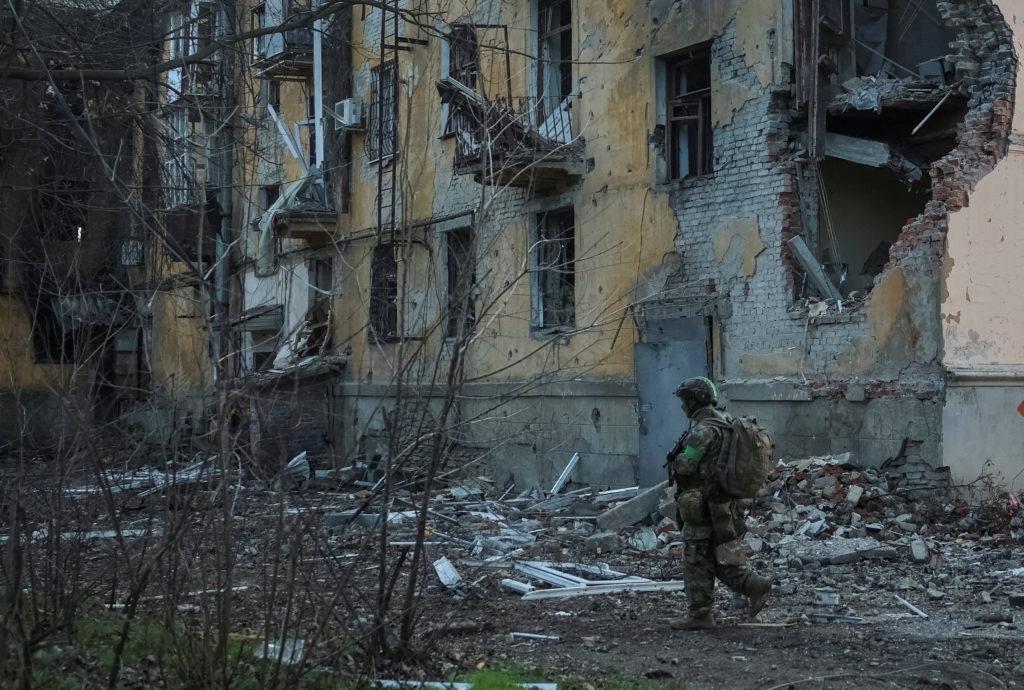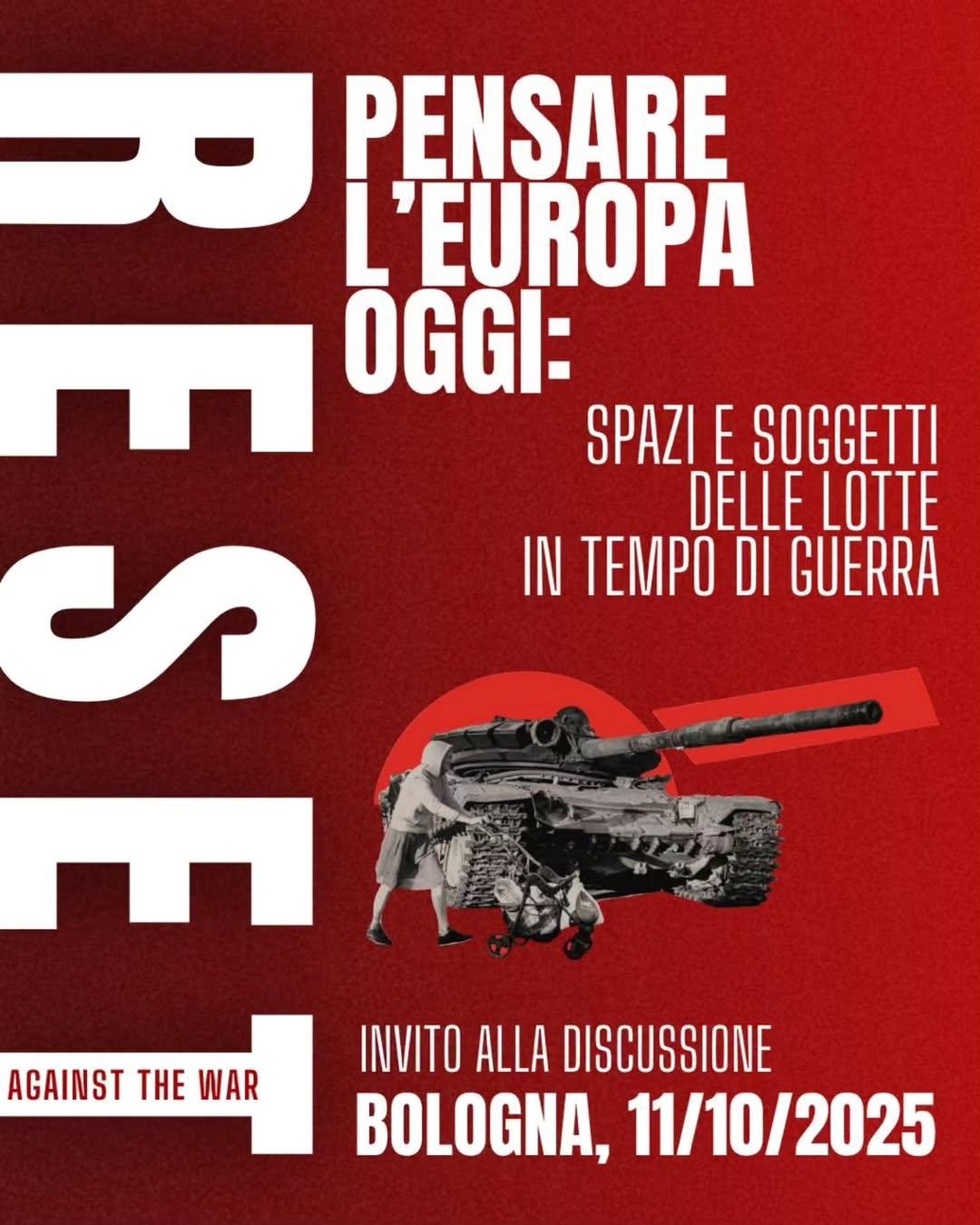
If they block our future, we’ll block the city! Notes on the university mobilizations in the Italian autumn of 2010

The image of the Leaning Tower of Pisa occupied by students traveled the world over, ending up on the BBC and the front page of the Financial Times in a matter of hours. A mirror image was taken a few days later: a besieged Parliament, closed off in their backrooms to approve an unpopular law while outside the country was blocked by the new generations. Two years from the “Anomalous Wave” movement, university students are once again the ones politically translating the lurking conflict latent in the world of education.
The Gelmini law passed the House but its passage was anything but painless. The parliamentary agenda was accompanied by a week of radical organization, both intense and capillary, extending to every Italian city. The “Wave” was not followed by a tsunami but by many small shockwaves that made an already unstable government tremble for a day (the 30th of November).
The forms practiced in the mobilizations were varied: the occupation of universities, didactic suspensions, metropolitan paralysis, blocking the main nodes of transportation (stations, ports, airports), attempted interruption in institutional buildings and the squatting of national monuments.
Every initiative tried to synthesize the radicalism and the communicative nature in their acts. Protest actions generally resulted from assembly discussions between hundreds of people and virally circulated across social networks, not excluding word-of-mouth and direct communication, reinforced by assembly practices as reclamation of commonfare practices.
Class struggle in Temples of Knowledge
Intelligence for seizing the moment, the political use of the network, bending mainstream communication devices, ability to synthesize a wide political discourse; all these attributes confirm how the highest political composition of class in the country is condensed into the student today.
Comments and editorials seem to be aware of this, macroscopic if compared with the misery and auto-referentiality of political parties and presumed social élites. From the newspaper Repubblica to cultural circles, all the way to the random gestures of opposition leaders (which, however, have been mostly ignored by students), everyone realizes, suddenly, that students are here and that they are not pacified whatsoever, nor have they been reabsorbed into the current productive and political configuration.
If the empathy that the movement draws out is an acquired and pacific fact, the challenge that these bodies thrown into the Italian piazza are posing isn’t so. The pure face of a subject that talks about “saving the public university” is easy to like, the political sense of an alternative system less so. There is the impression that behind the (thinly veiled) acquiescent façade that a part of the cultural lobbies are putting up towards the students, there is a deep fear of much broader claims and a terror that these claims find conflictual generalization throughout the entire social body.
This is because the questions that students are asking, whether they know it or not, are directly linked with a social stratification that is evermore brutal and rigid and that seems to be the only possible future for new generations. A stratification in which access to the university no longer functions as a principle line of demarcation, having been totally incorporated into the corporate university, with an infinity of artificial conflicts that determine the rhythms of any academic career according to the logic of differential inclusion.
This is why students, from their first year of enrollment, have the experience of being inside a gigantic factory in which every passage is already determined while they are constantly hearing voices from the outside telling them not to have any illusions about their working future.
The pubic school has always worked like a double track anyway: on one hand an institution of social promotion, on the other a mass disciplinary machine for future workers and citizens – a kind of macro social regulator that guaranteed the exchange between consensus and future promises in a systemic framework.
With the crisis of stockholding capitalism, school’s mediating function has completely broken down, now acting like a mere parking lot: “no more upward mobility” says Capital to the new generations.
Underneath the hashed and rehashed slogans of the inviolability of Culture, the specter of class struggle is haunting the Temples of Knowledge.
European Framework, Italian Anomaly
These observations force us to make both a more general comparison and a correct declination of the question at the height (or the gravity) of the Italian anomaly.
The student mobilizations this fall should be interpreted on multiple levels. One immediate and contingent one, in the occasion of the parliamentary discussion on the Gelmini law; a continental one, that measures the propagation of student mobilizations on a European scale; and a third, that identifies the link between renewed conflict in education and the financial crisis.
The House of Representatives passing the law is interesting above all for the space of political subjectification that is opened inside a composition that the previous Wave partially participated in. More than a result, it is important to measure the growth of subjective potency that this brief but intense experience has produced. Even if the numbers aren’t as high as the Wave, the force of the new movement must be measured in its capacity to produce an acceleration and radicalness in social movements. Everything happened in under two weeks but has left a deep impression in the subjective constitution of the many people who participated in such a brief but intense season of struggle. Grand discussions made way for a more direct need for action and intervention. How to affect change, disrupt and hurt the adversary have been the main questions. For the first time, students effectively went on strike directly inside the corporate university, sometimes even being able to totally paralyze didactic and administrative functions. All this over the whole surface of society, asking what it means to go on strike today, to interrupt the whole capitalist cycle. This is where the reasons behind metropolitan blocks and the interruption of traffic and communication fluxes come from.
On this level, the European lesson – especially from France – has been indispensable.
At least since 2006, with the anti-CPE movement (maybe with some timid anticipatory elements from the Italian struggle against the Moratti reform in 2005), the struggles across the world of education are, in all senses, conflicts that call labor legislation into question. Since then, with yearly punctuality, these struggles have been seen in practically every European country, stronger in Western European countries (France, Italy, Spain, Germany, Austria and now England) and in a somewhat lighter but significant form in newly acquired states (like Lithuania and the Czech Republic). The capillary and common denominator of all these movements point toward a great cycle of struggle against the “Bologna Process” with which, only 10 years ago, the constituting European Union foresaw the homogenization of higher learning on the continent.
When one speaks of homogenization, standardization is always intended. This means regularization of difference (which could instead be a resource) but also promotion; a homogeneity that aims at bettering things, to the highest degree. It didn’t work. To stay within these bothersome “European parameters”, the Bologna Process was articulated across the board as education and research cuts. On a deeper level, it tried to redefine education as the production of precarious and flexible workers who held the qualities asked for by businesses and companies.
The European student struggles over these last 5 years should be interpreted as the standstill and failure of this process.
If we look at what is happening in Ireland today, and the promises that these measures are announcing for other pieces of Europe, we can measure how the failure of the Bologna Process somehow accompanies the failure of the European Union as an exclusively Money First union.
The last and most important level that this struggle (and all the other ones that are investing the world of education even outside of Europe) must be measured on is its direct contact with financialization devices.
The Gelmini reform has the tendency of prospecting a complete dumping of educational costs from public spending to individual students, through the institution of ‘debt’ that students will have to negotiate with banks in order to enroll and follow courses. A mortgage on one’s own future that has already been the norm in Anglo-Saxon countries for years. Last year American students and this fall English students revolted against the intensification of this very device. The university planned by Gelmini, Tremonti and Sacconi goes in this direction, with the wholly Italian particularity of having many other resources available. Tracing the lines that connect these movements, even though geographically distant and different in the power of numbers and radicalness, is indispensible for understanding what grounds we will have to fight on in the coming years. The first answers that we have observed and participated in over the last few years demonstrate how new student movements are the principle, and at the moment the only organized reaction to the global financial crisis.
The Legacy of the Wave: Steps Ahead and Unanswered Questions
Having measured the multidimensional and problematic light that this new and important season of struggle must be seen in, before looking beyond and moving forward, a comparison to the previous cycle of mobilizations in and around education it might be useful.
The Wave movement that spread throughout every university in the fall of 2008 represented a breath of fresh air in the Italian swamp. The slogan “We won’t pay for the crisis” synthesized an attentive interpretation of the current situation and became a political program for struggles to come, identifying the crisis as an anchorage point from the point of view of the actions of precarious subjects and students.
As many have already stresses, the importance of this movement couldn’t be limited to its success or failure in blocking the reform. Rightly so, a symptomatic approach aimed at gathering the new and possible elements that a new social composition offered prevailed. The result of this struggle pushes us to the same considerations.
Yet, even in repetition, new and significant differences have emerged.
The dominant rhetoric of the Wave sketched a uniform university of students equally affected by the proposed reform. Rectors, professors, researchers and students were all on the same plane, omitting the material reality of hierarchies, powers and roles.
This weakness, that the counter-rhetoric took advantage of, was confirmed by the constant obsession of students looking for support from professors and university élites. As if the requests of the movement were not strong enough to do without their baptizing. Today, the movement has mostly done without this “support”. It hasn’t even looked for it, the memories of the previous experience still freshly vivid.
This contradiction, that has always been inherent to the world of education, has remerged in a condensed form in the struggle of the researchers who threatened and practiced their “unavailability” of bearing the burden of excess work imposed by the corporate university.
An exemplary moment of the battle happened at the beginning of the academic year with the Rector of Bologna threatening to suspend and replace any researchers who refused this burden. Many spoke of the “Marchionne Model” applied to the university. During an interview, one researcher from Bologna refused this representation, preferring to talk about a “sense of responsibility” for the fate of the public university. Inside what was expressed as a conflict of opposite and partial interests the adage of the general interest popped up.
Between becoming class and staying corporation, Italian researchers chose the latter, being easier in the short term but a losing strategy in the long run. As this movement and the Wave before it have demonstrated, only students have the numbers and the quality for overturning the whole of power relations inside the university. Researchers certainly occupy a central role in the corporate university. Strategically, however, they have to know how to understand a political alliance with students as necessary and immediate, abandoning any velleity of integration and collaboration with a university élite that wholly incarnates the emperor’s clothes.
The Next Step: Generalizing the Protest
Politically recomposing conflictual subjects inside university departments isn’t enough! If, as we have suggested, the last few years have been witness to a virtuous circularity of reciprocal stimulus and grit between student movements on a European level, looking towards Europe also means understanding the processes of generalization and transversal character of the social conflict that some of these experiences are starting to show.
For the first time in France, we have seen the limits that cunningly confined the limits of student struggle with a dominant media narration broken. It is true that the occasion was offered by a space of wider social struggle, by an unprecedented attack against Labor and Welfare. But what is significant is that high school and university students were blocking their institutions and the streets… all to oppose a retirement reform! This gesture is immediately political for how it breaks the fences of the social and generational compartmentalization that biopower uses to segment and control social struggles.
Taking advantage of this means continuing down a double and simultaneous path: coming out of the universities to socialize the struggle and bringing what is starting to move against the crisis and the measures ordered by the other side into the Academy. What has always been practiced by small avant-gardes must be socialized as the commonfare of the most generic student composition. If it is true that students have been the first to explicitly oppose crisis capitalism, it is also true that they can’t do it alone, in Italy and elsewhere. How to continue and intensify a constant practice of aperture, circulation and connection between struggles must therefore be posed as our main objective over the next few months.
Right now, Italian students are facing several important deadlines: the Senate discussion of the law and the construction of a national day of mobilization against the Berlusconi government on the 14th of December. Both of these occasions will continue to be infused with the call for a general strike by the main Italian union, the CGIL. These important moments for speaking out cannot, however, overshadow: 1) necessary work to be done and constant internal sabotage of the reform; and 2) the preparation and organization of the coming conflicts.
Translated by Jason Francis Mc Gimsey
Ti è piaciuto questo articolo? Infoaut è un network indipendente che si basa sul lavoro volontario e militante di molte persone. Puoi darci una mano diffondendo i nostri articoli, approfondimenti e reportage ad un pubblico il più vasto possibile e supportarci iscrivendoti al nostro canale telegram, o seguendo le nostre pagine social di facebook, instagram e youtube.




















